Starting an MA program in Screen Studies while working full time, after twenty something years out of college didn't help the matters much either, I reckon. But I have to say that I am learning a lot. I am realizing that there is a limit in being an enthusiastic cinephile alone to take in what all of cinema offers, that one needs a vigorous examination even in what you love and is passionate about.
So once again, I tried to take solace in cinema and its forever hopefulness and energy in 2019. Female filmmakers took center stage this year and ended up with 5 films represented on my list (7 in last year's top 30). But more importantly, most of the films in top 10 deal with female perspective. Regretfully I missed some films I wanted to see this year, specifically: Beanpole, The Load and Monos. Hopefully I will catch up to them soon and the viewings will be reflected on next year's list.
So without further a do, this is my favorites of 2019, the last year of the decade! Happy holidays and Happy New Year!
Click on titles for full reviews:
1. Atlantics - Diop

Expertly weaving the current headlines of maritime disasters, in which countless African refugees searching for better life meet their watery grave at the bottom of the Atlantic ocean, and the ghost story with the female solidarity twist, Atlantics has all the right ingredient to be a success story of a small art film breakthrough recalling Uncle Boonmee Who Can Recall His Past Lives. It's a melancholic romance film set in bustling Dakar, featuring the lives and hopes of young Senegalese we seldom get to see. It's also hopeful and lyrical yet pointy.
2. Vitalina Varela - Costa
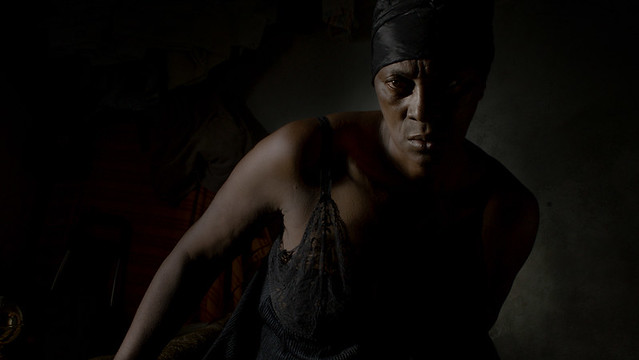
As usual, Vitalina Varela is stunning to look at. Every frame is a work of art. Greatly aided by Leonardo Simões, Costa's cinematographer since Colossal Youth, and João Gazua and Hugo Leitão's sound work, the film gives the lives of its inhabitants the poeticism they deserve.
3. Portrait of a Lady on Fire - Sciamma

What’s remarkable about Portrait of a Lady on Fire is its timelessness. This is not another tragic drama about women trapped by their circumstances. There is a joyful vibrancy about the film. They fully accept their fate, laid out by period and society. Yet they enjoy their few days together and remember it forever. It’s super life affirming and uplifting, rather than sad.
4. An Elephant Sitting Still - Hu
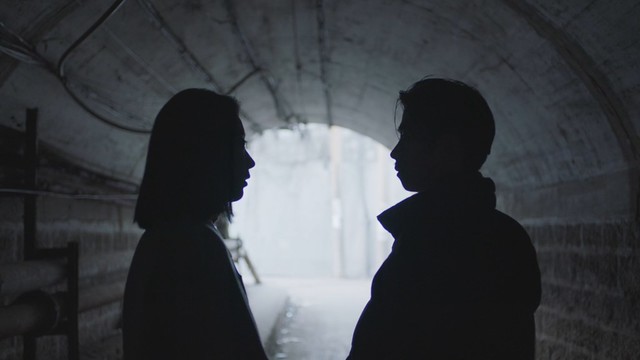
It's a substantial human drama with deeply felt characters with their crushed, burdened souls. The idea of using an immobile circus elephant (which never materializes on screen) as a wised out Buddha who silently observes human follies play out around him as some sort of metaphor for happiness/salvation has a direct lineage from that of a whale in Werkmeister Harmonies. It's better off that we don't get to see it. Only hear its roar during its end credit, just like that that donkey's cry in the beginning of Au Hasard Balthazar. The beast of hopes and dreams. The beast of burden. An Elephant Sitting Still is beautifully tragic. And it a major film that came out in recent years that I can recall.
5. Sunset - Nemes
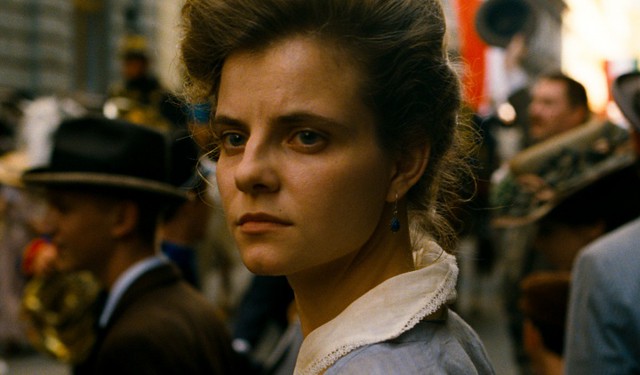
Sunset juxtaposes a society on the brink of self-destruction with something trivial and decadent as a designer hat shop. There is something creepy about all the beautiful, young women hat-makers preparing for the dance ball for the crown prince and princess and be chosen as a personal milliner and move to Vienna. Nemes doesn't give an easy answer to any of these intrigues. Instead, he makes us work for it. And it’s damn well worth it. As the title indicates, the film tells a lot about human hubris and rightfully reflects on the decadent, chaotic world we lead toward the edge of extinction right now. One can read Sunset as a warning that history repeats itself. But it’s the last segment that also shows the endurance of human spirit. Let’s hope we are strong enough to withstand what’s coming for us.
6. Asako I & II - Hamaguchi

Based on Shibasaki Tomoka's novel Netemo sametemo - Waking and Dreaming, the film tackles on letting go of the first love from a woman's point of view in a very unique way. Hamaguchi has a great sensitivity dealing with delicate subject and make his actors shine.It is refreshing to see a Japanese film that is modern and direct and not trying to be overtly Ozu-y or arthouse poetic or genre-y, yet very Japanese. I very much appreciate Hamaguchi Rusuke's work.
7. I was at Home, But… - Schanellec

Just like other Schanelec's work, I Was at Home, But... is a puzzle piece that is never solvable. We have opaque characters with Bresson style delivery. We instead concentrate on gestures, details inside the frame in compensation for the lack of dialogue. It's that fragmentary images and colors that we play around our heads long after we leave the theater to make sense of it. Even more so than Godard's, Schanelec's cinema concentrates on 'visual' part of the medium. It is the best kind of cinema I can think of.
8. Souvenir - Hogg

Calling The Souvenir an autobiographical filmmaking would be selling the film short. It's a delicate film that doesn't seem to have a special agenda other than humanizing the aspect of the people she encountered earlier in her life. With her baby face and pale complexion and her gaping mouth, Swinton Byrne is terrific in the role of Julie. But it's Tom Burke who steals the show here. His charming yet slightly dangerous demeanor - a cross between Oliver Reed and Hugh Grant is magnetic.
We meet people in our lives who changes and shapes you when you are on the verge of adulthood for better or worse. The Souvenir succeeds in eulogizing that period of your life lovingly and poignantly.
9. Synonyms - Lapid

Synonyms can be a difficult film: it can be seen as rudderless and abrasive. Sense of irony dominates the film as Yoav struggles with his identity. It's packed with dueling exaggerated visions of perverted and uncaring Europe (France in particular) and the uber military culture the director Nadav Lapid grew up with. The film concludes, as Yoav trying to open the door by slamming his body against it, you can't escape where you came from and the gap between the world you are trying to assimilate remains shut closed. But the film works, thanks largely to Tom mercier's physical as well as verbal, at times verging on slapstick level on both counts.
10. Just Don’t Think I'll Scream - Beauvais

Culling mainly from thrillers and gialli, the images, lasting not longer than few seconds, features images of gestures, objects and actions, never lingering long enough to see the faces of recognizable actors or persons. But nonetheless they are thrilling, matching up Beauvais's continual rants. It's as personal as a film gets: bonding with his estranged father after taking him in after he fell ill over a gremillon film, and witnessing him dying watching the film, procrastinating in getting rid of personal belongings he obsessive compulsively collected over the years - records, books, CDs and DVDs, furniture.... Not since Godard's essay films, have I encountered a purely visual film that is culled from existing material that is also immensely pleasurable. Just Don't Think I'll Scream works beautifully, precisely because it's so personal. This is what an essay film of a true cinephile should look like.
11. The Lighthouse - Eggers

The Lighthouse is a crazy hallucinogenic trip that is extremely original. The two actor's physiognomy, Dafoe's troll-like, gangly body and posture and bushy beards (right out of Van Gogh's paintings) and Pattinson's bulging eyes and angular face, is very well used. There are many unforgettable imageries. The Lighthouse is a quite unique movie watching experience.
12. Maya - Hansen-Løve

The film could easily be called Gabriel since it's mostly about him. We get his back story, his family and love life and Maya is just a young girl who falls in love with a hunky, intense French guy. She is just starting out her life. So this is why the film is an interesting narrative departure for Hansen-Løve, who's been making thoughtful observations on people in transitional period. Maya is not unlike Camile character in her Goodbye First Love, except she is not the main character. Or is she? Maya is a movie about that special person who had made a big impact on your life. He or she pretty much made what kind of a person you are now. Again, beautifully scripted and ambitious in its scale, Hansen-Løve keeps expanding her territories while not losing sight on where her priorities are - portraying melancholy of growing up and acknowledging that there is a price to pay for following your passions.
13. Bacurau - Filho, Dornelles
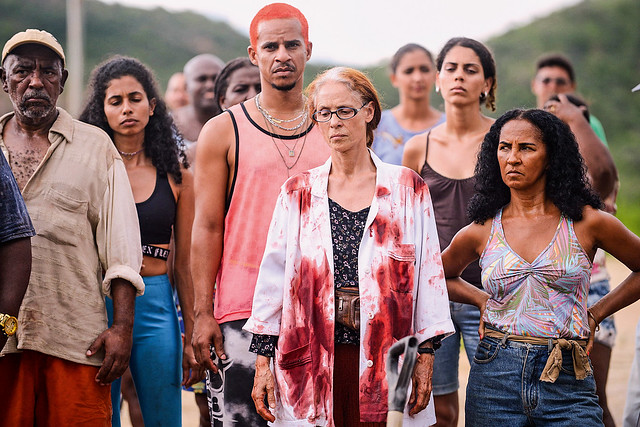
As the Bacurauans get rid of foreigners and local traitors, at a glance, without the context of what's happening in Brazil, the film is a silly, tacky man-hunting-man akin to The Most Dangerous Game or Naked Prey. But it isn't. Bacurau highlights the resilience and resolve of Brazilian people against mounting assault of multi-national corporations backed by Government military to devastate their beautiful, once burgeoning country.
14. Oh Mercy! - Desplechin

The sordid story is nothing to brag home about. There are millions stories like this we see on TV every night. But it's Desplechin's so very human portrait of these characters that is the heart of the film. There are several compelling scenes in the film but the one most stuck with me is Daoud's cool observation of the girls' relationship that sums up their entire history. He tells Claude what he sees - A pretty girl who was popular in school. But she finds out she can't really get what she wants or want others to get it for her in real life. Time in a town like Roubaix wasn't kind to her. She is stuck with her childhood friend who still worships her. They live in a day to day life in a squalor. It's a bad relationship. She knows it all to be true. Oh Mercy! is certainly different from any other Desplechin film I watched over the years. But it's any less intriguing. The love he has for his hometown and its inhabitants are undoubtedly palpable. Desplechin is a master storyteller and humanist.
15. Zombi Child - Bonello

Bonello, forever sensualist, presents some beautiful, lyrical shots of Narcisse the zombie standing erect motionlessly, looking afar in the fields, in ancient ruins. It is pretty evident that he takes much of the lyricism from I Walk with a Zombie. Fanny's silly school girl story aside, Zombi Child digs deeper into hasty western appropriation of everything non-european, non-anglo American culture. It disregards the cultural, historical, ethnographical significance of the origins of a zombie in exchange for sensationalism. Narcisse’s journey back home is more interesting than Fanny’s story here.
16. Wild Goose Lake - Diao
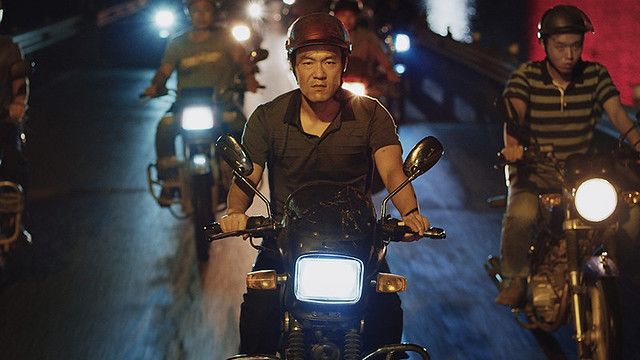
The film showcases the changing China: from the emergence of middle class and its subculture - 'bathing beauties' with their wide brimmed straw hats, lessons in which motorbikes are more valuable and easier to steal, to the rigid police state with CCTV in every corner and sheer precision of its well trained tactical force in action. Attention to detail and controlled chaos Diao manages in the film is nothing short of astounding.
17. Us - Peele

Smart and quick witted, Peele knows when he needs to be obvious - title Us also doubles as US, as above so below/mirror image concept, a guy holding Jeremiah 11:11 sign, NWA's Fuck da Police blasts from Alexa like device (Police is 14 minutes away) in a pivotal moment, and when to be subtle - ok, not really. There are clever moments like Adelaide telling her white friends that black people don't have time to do frivolous shit (I forget what the conversation was about), suggesting the larger context that black movies can't afford melodramas because that would be a luxury. Or Gabe impulsively buy a used boat which is named B-yacht'chy. Also liked that Peele didn't overlit his actors, especially Nyong'o whose very dark complexion gives her more time to act with her expressive eyes. But I don't believe allegory and horror genre are enough to tell the whole story of racial AND economic injustice in this country. And I don't think whatever the elevation the genre has been garnering as high art, it can't express the corruption of humanity by capitalism wholely.
18. Sophia Antipolis - Vernier

Just like his previous film Mercuriales, Vernier's elliptical, loosely connected stories, Sophia Antipolis examines the seedy underbelly of a shallow modern society, urban isolation and loneliness and human connection. Daring, cerebral and playful with some lyrical 16mm shot images, it's one of the most invigorating film experience I've had in a while.
19. Meteorites - Laguna
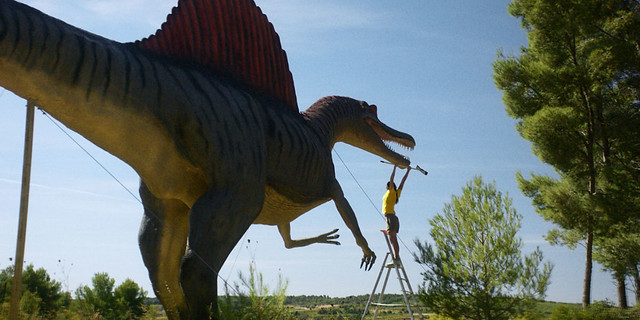
A young girl's search for her place in the universe is the theme of Meteorites, Romain Laguna's sensual debut feature. Nina (Zéa Duprez) is a High School dropout working at a dinosaur theme park in the south of France. One night, she witnesses a meteor charting across the sky and crashing over the rugged mountain. It seems only she saw the celestial event and no one else. Shot in full frame with vibrant colors, lush sun drenched surroundings and with Duprez's sultry presence, Meteorites is an affecting, lyrical coming of age film.
20. The Mountain - Alverson

The Mountain is a peculiar film about self discovery and the price of freedom. Its somber tone is only broken by the presence of Denis Lavant, a veteran French actor, known for his acrobatic physicality and manic energy in films by Leos Carax and Claire Denis. Here he is Jack, a father of Susan (Hanna Gross), a girl with an unstable mental state which her father deems in need of lobotomy, who becomes a love interest for Andy. Lavant's over the top screeching, unintelligible, animalistic, (at least it sounds like) largely improvised monologue (in French and English and otherwise) steals the latter part of the film. Alverson has a singular sense of humor and tone, rarely seen in American indie cinema. And I welcome it.
No comments:
Post a Comment